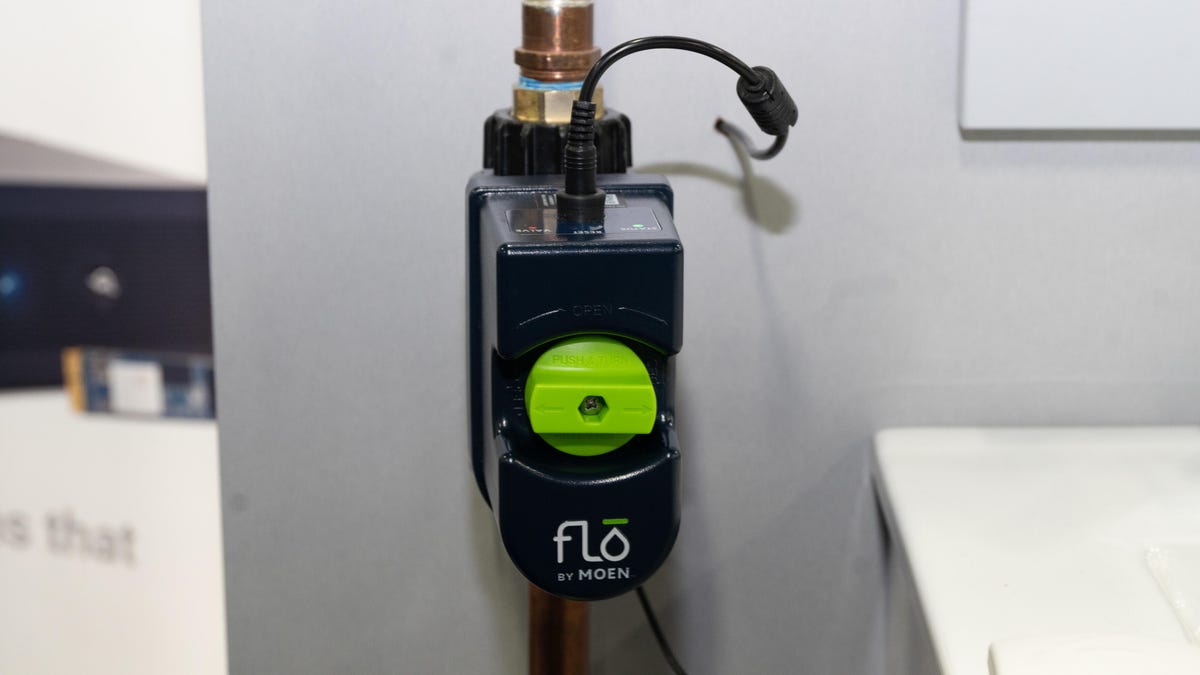Developers at CES still struggle to pitch this brilliant gadget
A rising tide of flood sensors at CES probably won't lead to impressive sales, even though they're clever devices that could save you thousands.

A week before flying to Las Vegas for CES, the biggest consumer tech show in the world, my wife insisted that I buy and install a DIY security system in our house. For about $40 and 15 minutes of work, I got a smart cam for the living room, two door sensors and a motion sensor for the basement. That sweet spot -- when price and accessibility match your spending impulse -- is crucial, and unlike smart cams, flood-detection and prevention gadgets just can't find it.
Don't get me wrong: I love the idea of preventative tech like flood sensors and shut-off valves. They could save you thousands of dollars, and some insurance companies have even toyed with offering discounts for people who use such devices. In the past, flood sensors have provided cheap, easy ways of guarding against flooding under sinks, behind toilets and in basements.
See also
- CNET's 20 favorite products of CES 2020
- All the cool new gadgets at CES 2020
- Full coverage of CES 2020
But these days, $50 can buy you a pair of smart speakers or a slew of security gadgets. "Cheap" is getting cheaper every year, and $30 to $50 for a flood sensor -- which is the range for new models from Phyn, B-hyve, Moen and Alarm.com -- isn't cheap enough for 2020. While sales are obviously high enough to justify the products, flood sensors have yet to experience a moment of wider adoption that other security devices, such as cameras, have seen.
There are other challenges for these sensors. The water shut-off valves that some of those companies offer alongside them, which automatically block pipes in the case of floods, are expensive and tough to install.
With billions of dollars in property damage from floods per year, flood sensors and shut-off valves seem ripe for broader adoption. And the rising tide of companies designing them attests to that potential. But the barrier to entry needs to drop before I can buy these gadgets on a whim and install them without much hassle -- and until that happens, these clever gadgets just won't find the market they should.

